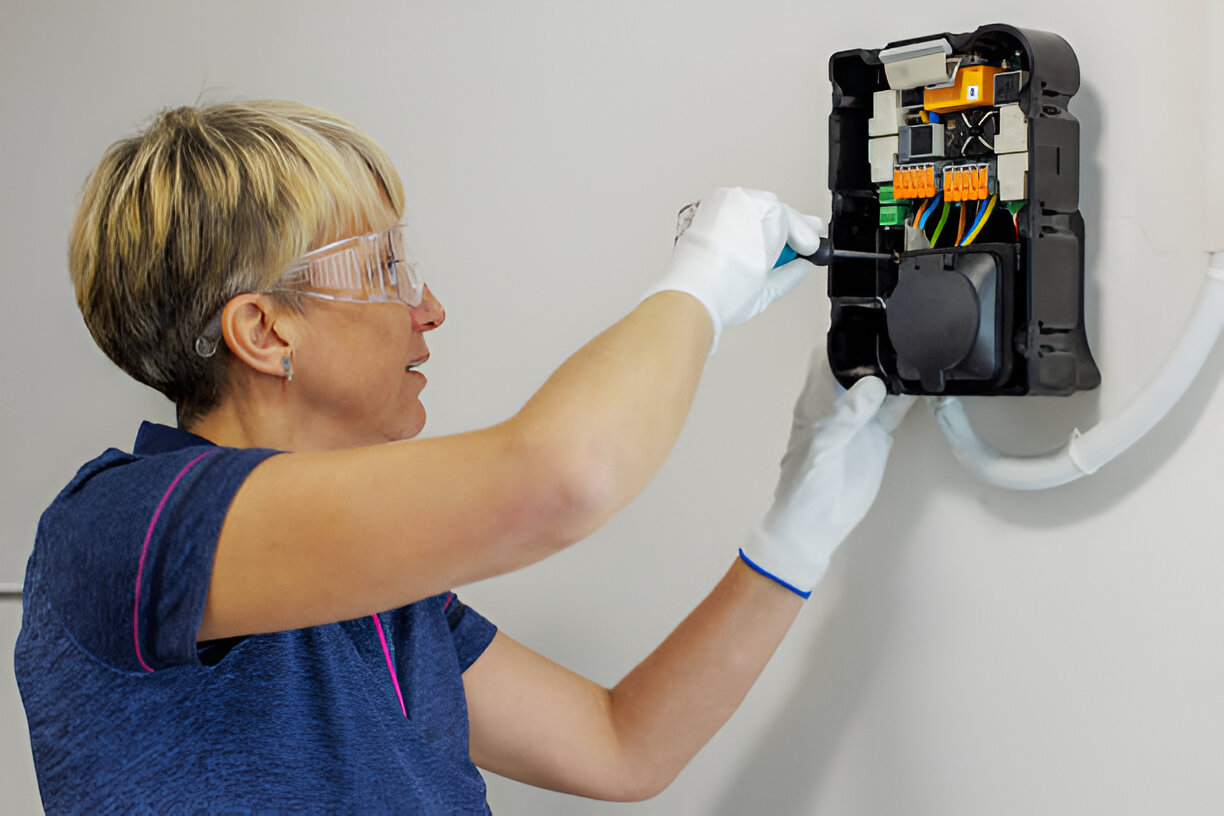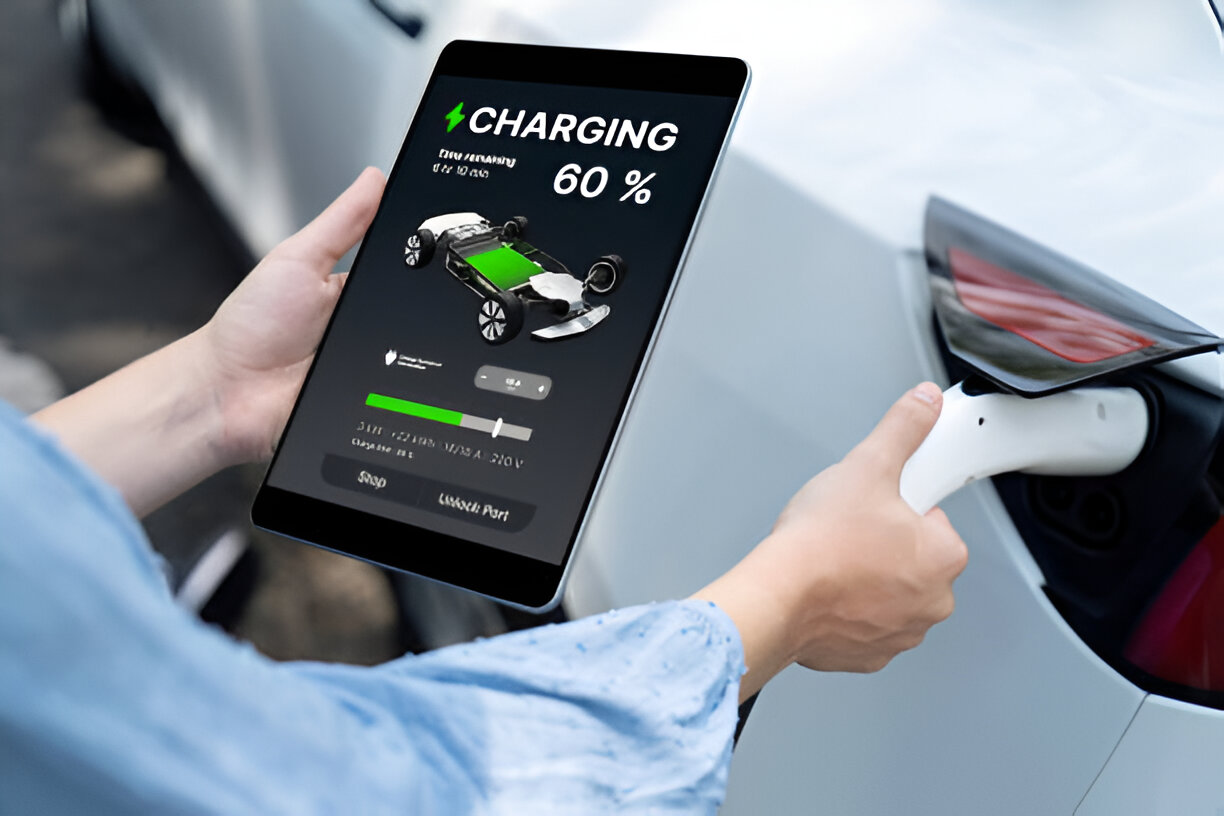We, at Air Control Home Comfort, do more than just install EV chargers. To ensure that our consumers have an exceptional experience, we provide comprehensive, in-house assistance to help you invest in the necessary charging infrastructure to join the EV revolution.
If you own a home or business, you should look into reliable and efficient choices for installing electric vehicle charging stations. Following are the three easy steps of EV charger installation:

After you have made your selection, click the "Get a Quote" button. After you provide us some details, we can provide you a price right away without having to do a site inspection either remotely or in person.

Take a look at the quote we will send you via email. Once you have reviewed everything, you can proceed with paying to have your charger installed. We offer many payment plans so you can select the one that works best for you.

Within two business days of your order's placing, we will send your EV charger to the location you provided after we receive payment. After completion of administrative tasks, your installation will be scheduled.
Air Control Home Comfort offers dependable, high-end residential EV charging solutions of the following brands




The home EV chargers of Air Control Home Comfort is compatible with following Electric Vehicle brands.












With Air Control Home Comfort’s Software Management System users can enjoy several benefits regarding service, operation management and payment processing.

The Air Control Home Comfort software management system makes it simple to find the closest electric vehicle charging outlets. The greatest charging experience is guaranteed by our CRM, which is packed with several appealing features. When it comes to searching, navigating, paying, and using EV charging stations, it is the best app for end users of electric vehicles. Locating stations and controlling your charges are only two of the many features available on the mobile app with which you can plan your charging sessions more efficiently.

If you want to start, run, or expand your own chain of electric vehicle charging stations, our smart energy management platform is the way to go. All aspects of charging station administration, from operations and security to accounting and invoicing, are covered by the platform. Electric vehicle charging services are provided by this smart energy management platform, which can be installed on OCPP-compliant EV chargers. Apps for both Android and iOS, as well as a hierarchical dashboard, are all part of this software administration solution

Smart Maintenance
An intelligent alert and self-recovery mechanism where maintenance requires least human interaction.

Data Insights
Charge session details and analytics allow for business analysis and cost optimization.

Visual Dashboard
Data visualization and intuitive navigation allow for real-time network snapshots.

Scalable Management
The scalability of OS allows for central management of the charging network or station.

Site Optimization
Efficiently controlling the position and photos of charging sites to enhance the EV charging experience.

Dynamic Pricing
Nearly little human intervention is required for maintenance due to an intelligent alarm.

Charging depends on the type of charger used as well as the capacity of the battery in the vehicle. It will take between 8 and 20 hours to fully charge the electric car if recharged using a Level 1 charger which makes use of a 120V supply outlet. Level 2 charger, that requires 240 volts outlet, charges a vehicle in 4-8 hours. For rapid charging, DC Fast Chargers can provide an 80% charge in as little as 20 to 60 minutes.
Level 1 charger utilizes a conventional power outlet from the house and is perfect for the slow charging that is done at night. Level 2 chargers call for 240V socket- a common one attached to homes, companies or charging stations – and delivers quicker charging rate than level 1. The DC Fast Chargers are powerful and meant to deliver fast charges which makes them suitable for mid-stop charging on long routes or charging at business centres.
Owners of most electric cars can charge their vehicles at public charging points but the type of connector needs to be right. Connectors: Level 1 and Level 2 – SAE J1772, some Level 2 units use Type 1 as well; DC fast charging – CCS or CHAdeMO. It is worth to note that Superchargers are usually designed only for Tesla cars but there are converters that could make the Tesla Superchargers compatible with other cars.
Charging depends on where and how it is done. Self-charging is usually the cheapest at a rate of between $0.10 and $0.30 per KWH. Charging stations charge anywhere between $0.20 up to $0.60 per kWh while there are others that have other rates such as flat rates, subscriptions. DC Fast Chargers, because of the speed of the charging process, cost relatively high, within the range of $0.40-$0.80 per kilowatt-hour.
● Address 746 Warden Avenue, Unit# 11, Scarbrough, ON M1L 4A2
● Support 647-693-6266
● Email info@aircontrolhomecomfort.ca
● Opening Time Monday to Sunday 24/7
Air Control Home Comfort is involved in improving the comfort of your home by supplying water softener systems with the highest quality and charging solution of electric vehicles (EV).
Copyright ©2024-2025 Air Control Home Comfort All Rights Reserved